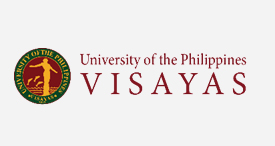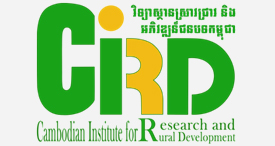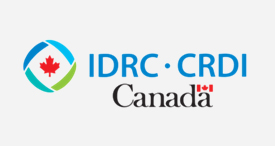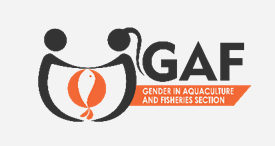News and Events
𝗠𝗼𝗻𝗶𝘁𝗼𝗿𝗶𝗻𝗴 "𝗵𝗼𝘄" 𝘄𝗼𝗺𝗲𝗻 𝗯𝗲𝗰𝗼𝗺𝗲 𝗲𝗺𝗽𝗼𝘄𝗲𝗿𝗲𝗱
Women have always been key players in aquaculture, but they are not seen, recognized, and valued as much as men are. Therefore, scientists and technologists who are keen to bring innovation and technical improvements to aquaculture also tend to ignore women, women’s knowledge and contributions.
Doing a deep dive into monitoring, evaluation and learning frameworks, we found a significant gap: these frameworks fail to capture the “how” of changes in gender roles and relationships over time. These shifts are often subtle but crucial, especially when working toward gender equality and climate resilience. Therefore, we have developed the gender monitoring schema, a process monitoring tool which reflexively monitors “how” gender roles in NbCS aquaculture are changing over five key domains. Keeping the context very much at the forefront of analysis, the schema leads towards the meaningful engagement of women (and potentially other marginalized groups), in turn leading to gender equality and empowerment of women. This is a path to understanding how gender transformative changes happen, so that projects can support and speed it up through the process of inclusive innovation. Let’s make space for gendered wisdom to shape the future of aquaculture.
Happy reading!
𝗙𝘂𝗹𝗹 𝗮𝗿𝘁𝗶𝗰𝗹𝗲: https://www.sciencedirect.com/…/pii/S0044848625006623
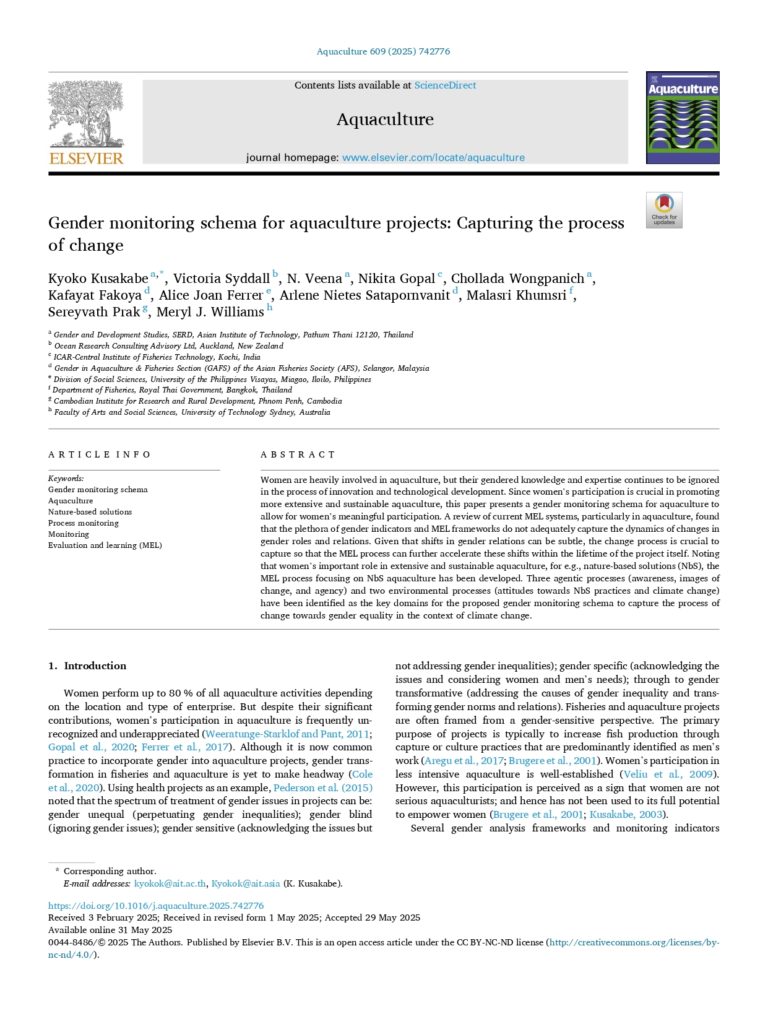
Piloting the Gender Monitoring Schema in Thailand




The GeNA Project in Cambodia




Gender analysis in the Philippines
The GeNA Project in the Philippines, led by Dr. Alice Joan Ferrer of the University of the Philippines Visayas, wraps up the data collection for the socio-economics and gender analysis of the pilot sites in the Municipality of San Dionisio, Iloilo, Philippines. Focus group discussions and household surveys were conducted and participated by 234 women and 203 men.



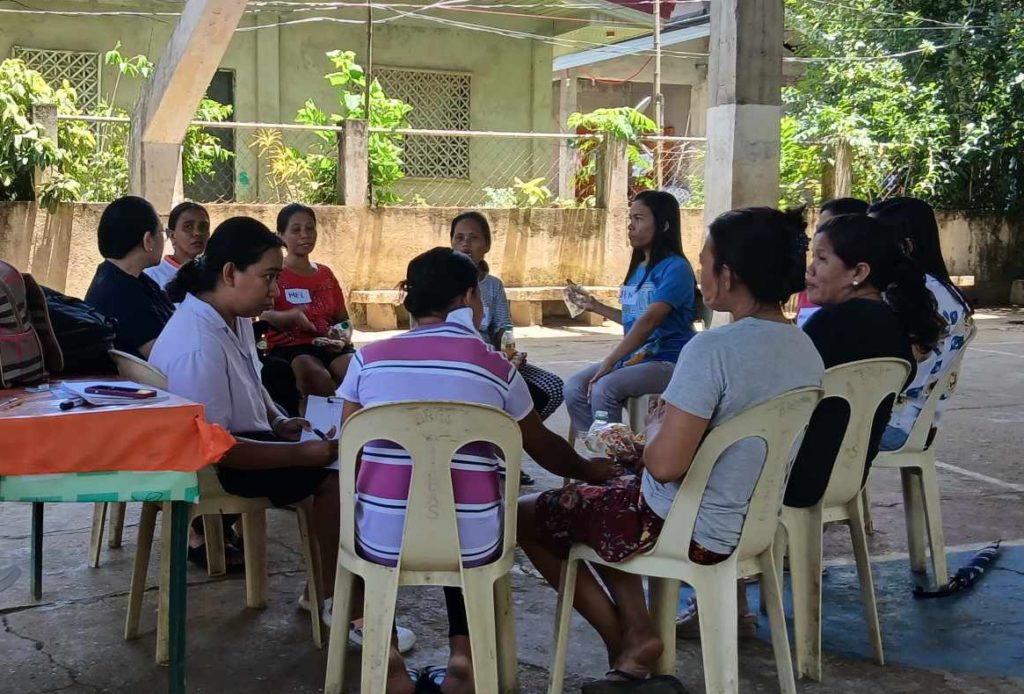
𝗘𝗻𝗴𝗲𝗻𝗱𝗲𝗿𝗶𝗻𝗴 𝗿𝗶𝗰𝗲-𝗳𝗶𝘀𝗵 𝗰𝘂𝗹𝘁𝘂𝗿𝗲 𝗶𝗻 𝗧𝗵𝗮𝗶𝗹𝗮𝗻𝗱
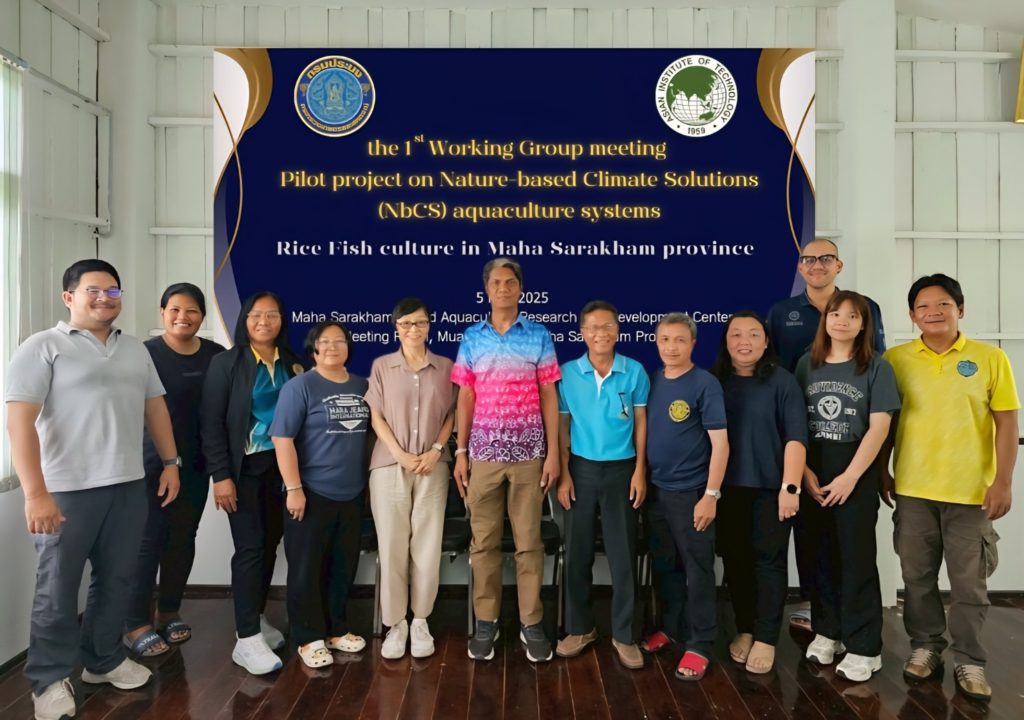
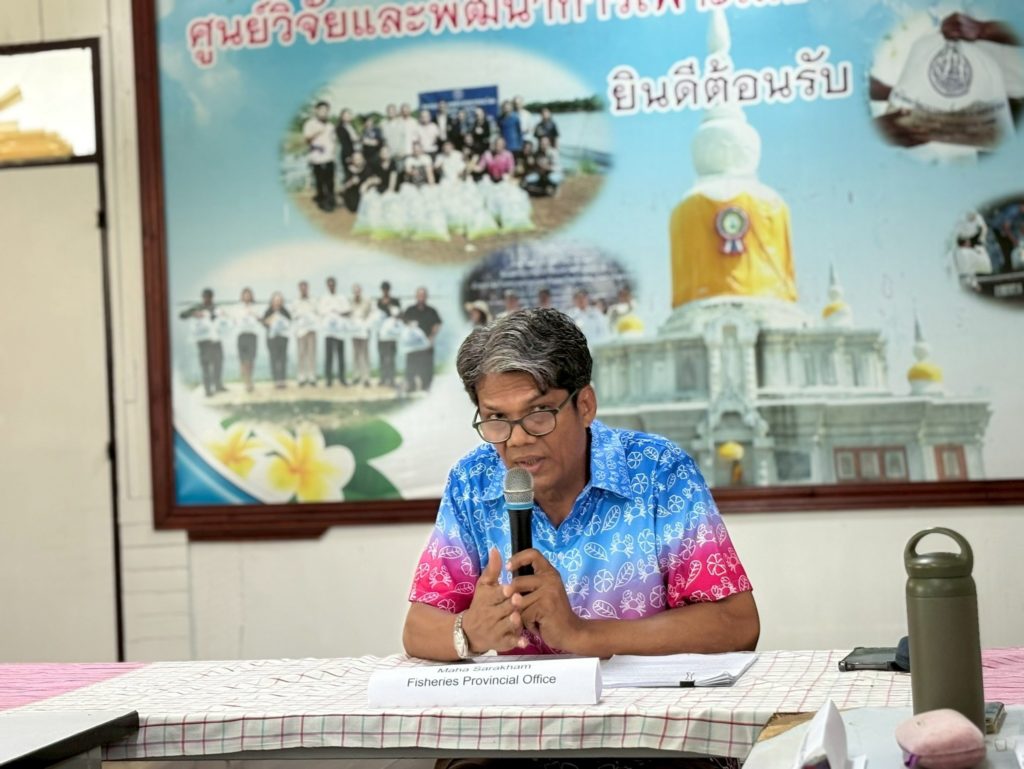
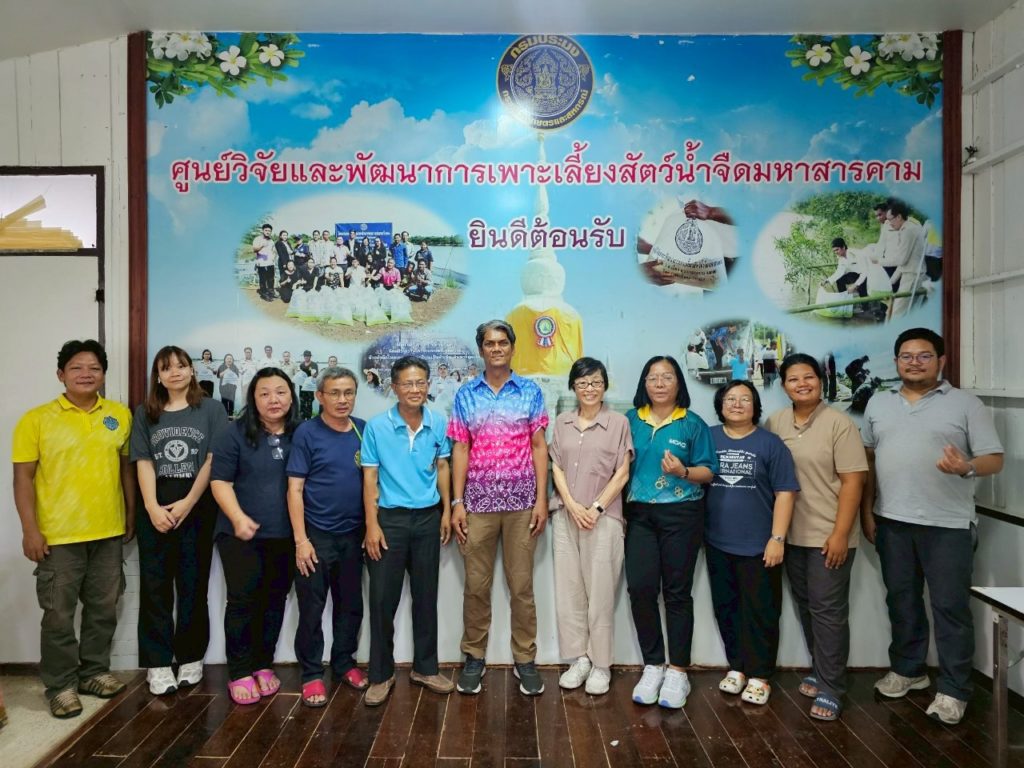
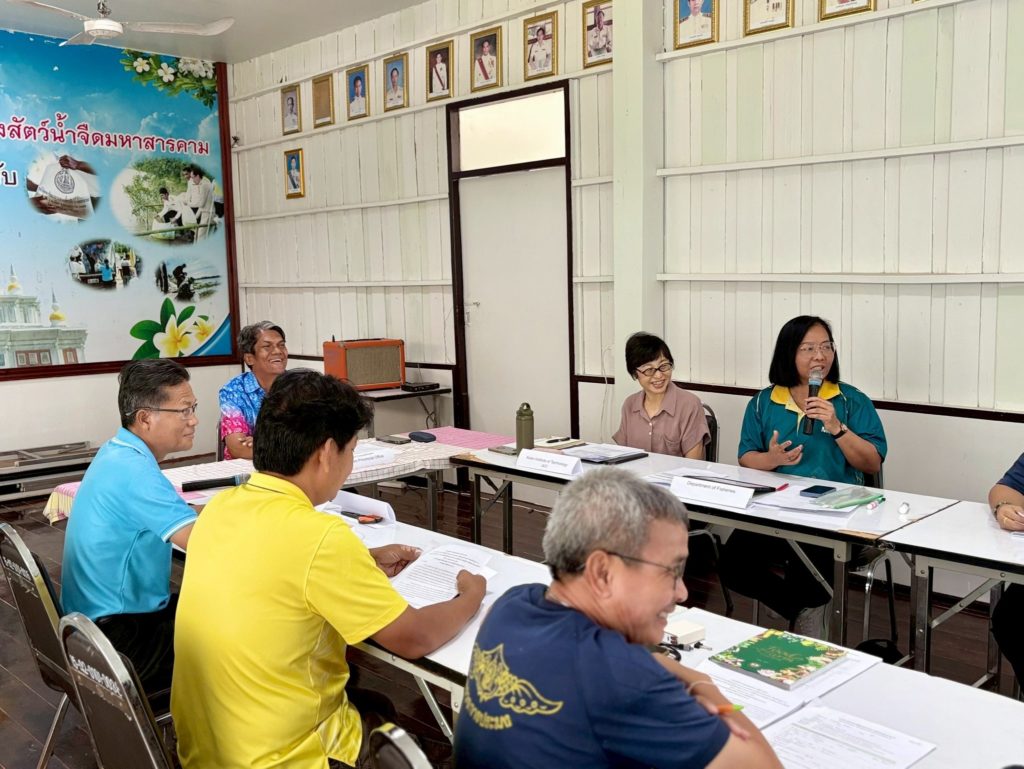
From Gender to Greening Blue Growth: Dr. Nikita Gopal’s Impactful Presence at 14AFAF 2025




🌾🐟 𝗙𝗶𝗲𝗹𝗱 𝗩𝗶𝘀𝗶𝘁 𝘁𝗼 Seaweed farming 𝗶𝗻 Iloilo, the Philippines 🐟 🌾
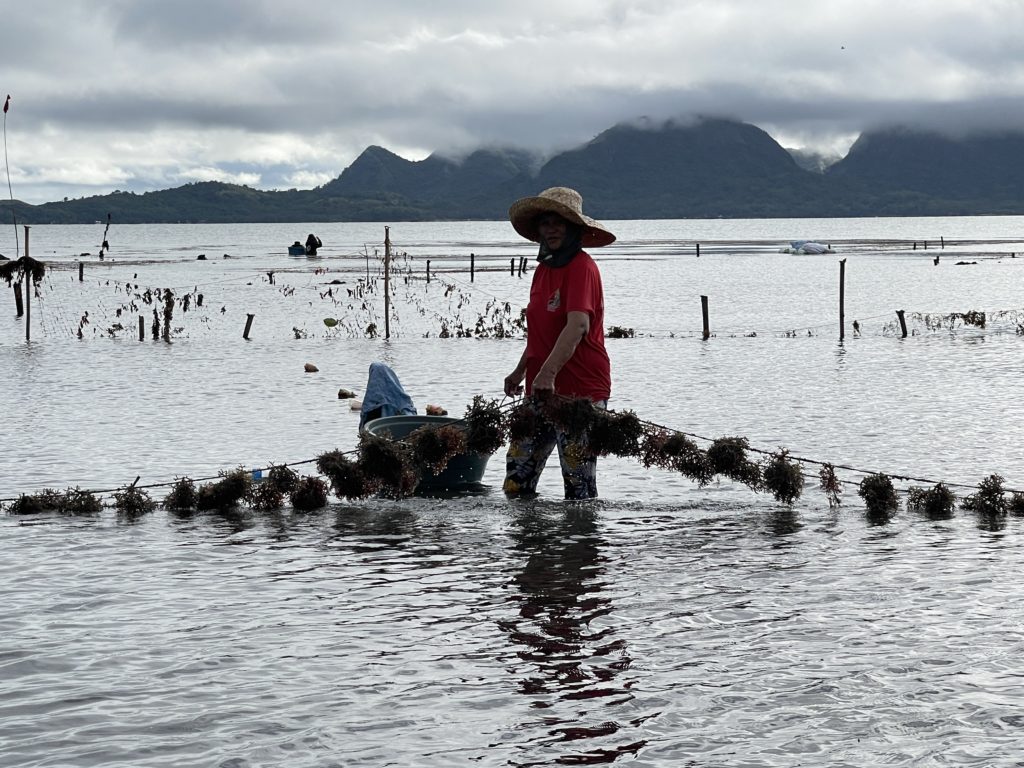
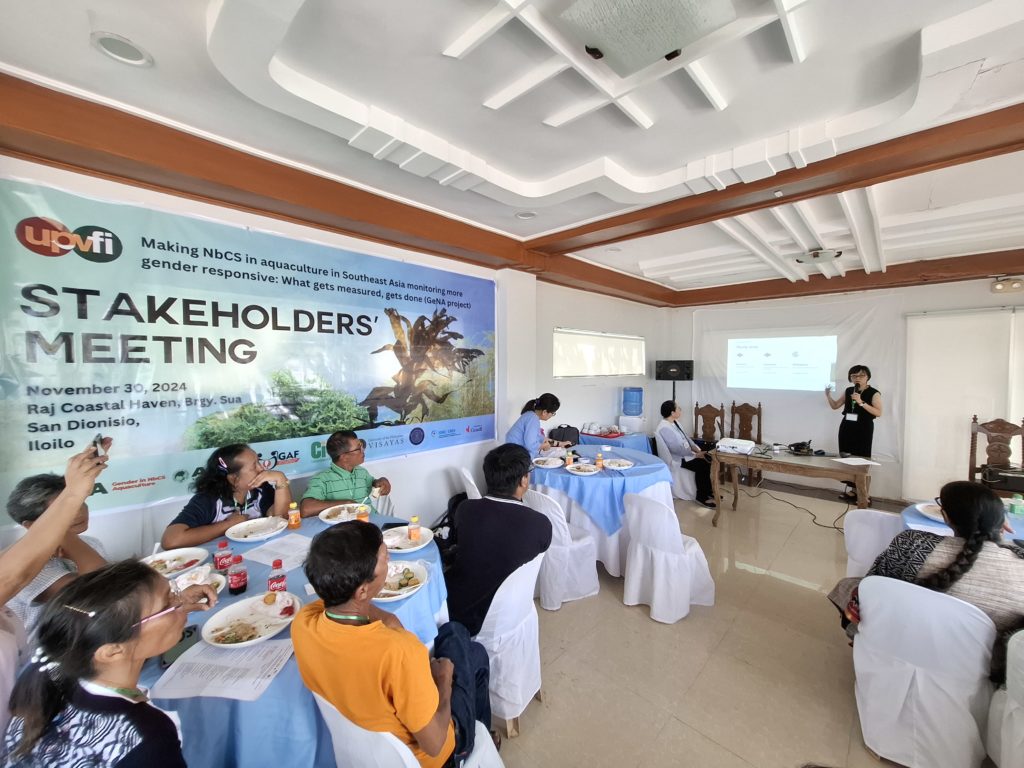
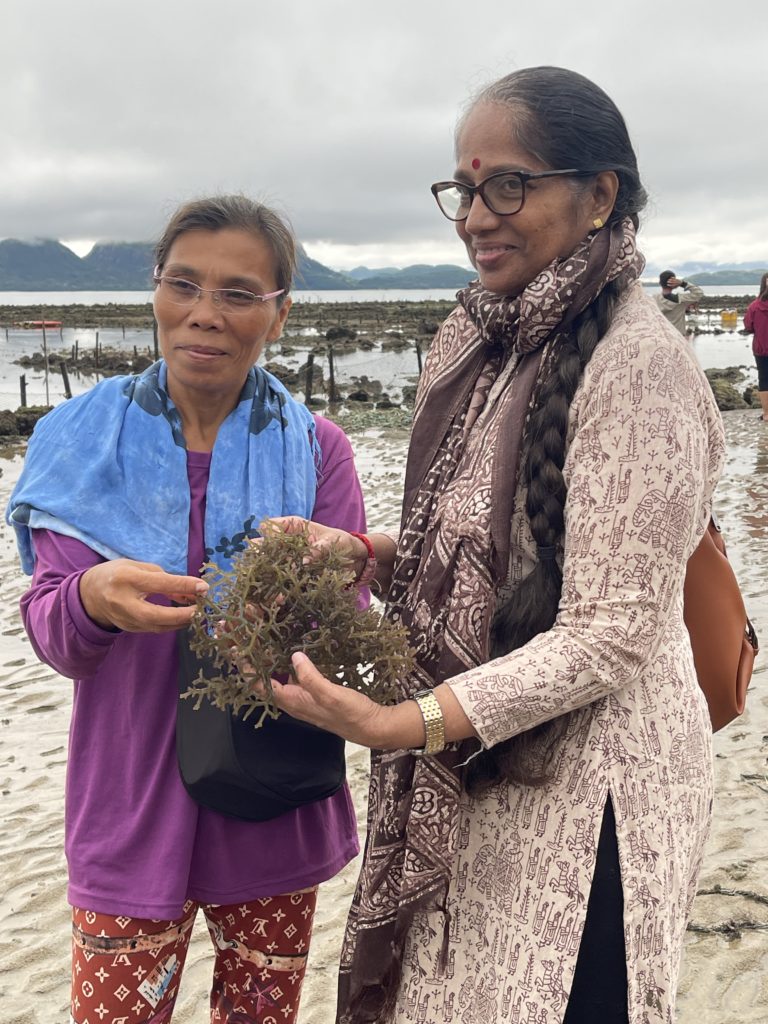
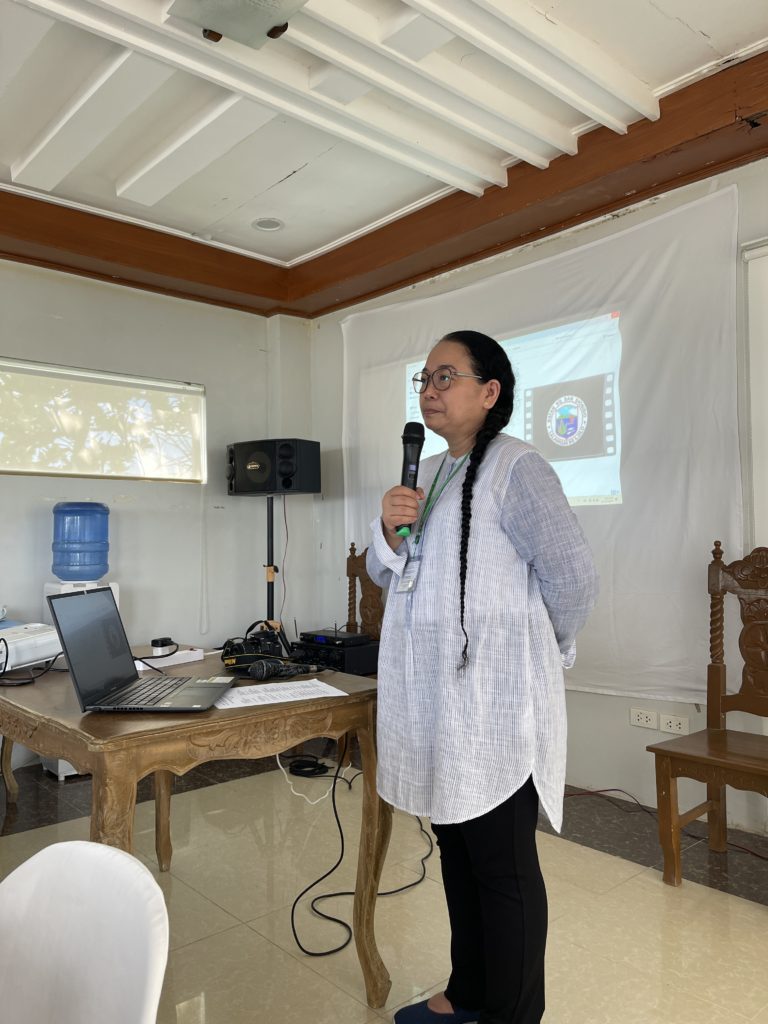
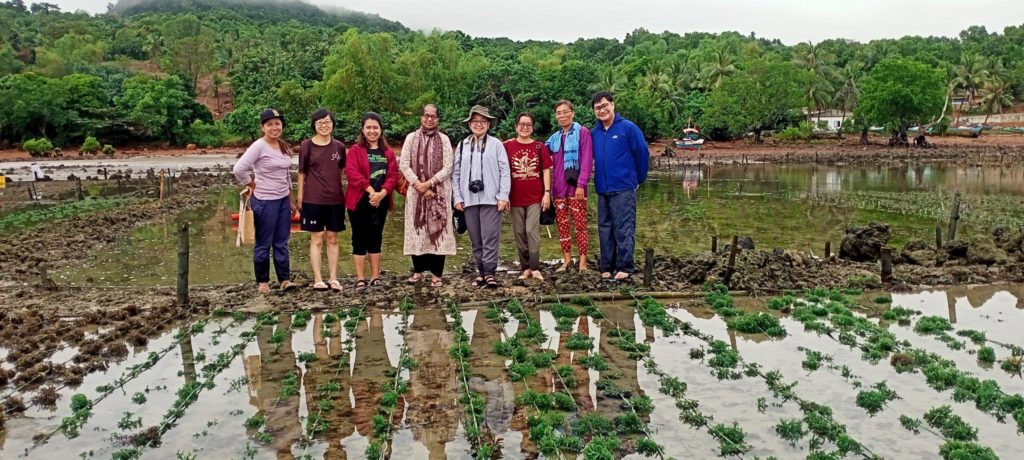
🌾🐟 𝗙𝗶𝗲𝗹𝗱 𝗩𝗶𝘀𝗶𝘁 𝘁𝗼 𝗥𝗶𝗰𝗲-𝗙𝗶𝘀𝗵 𝗙𝗮𝗿𝗺𝗲𝗿𝘀 𝗶𝗻 𝗖𝗮𝗺𝗯𝗼𝗱𝗶𝗮 🐟 🌾
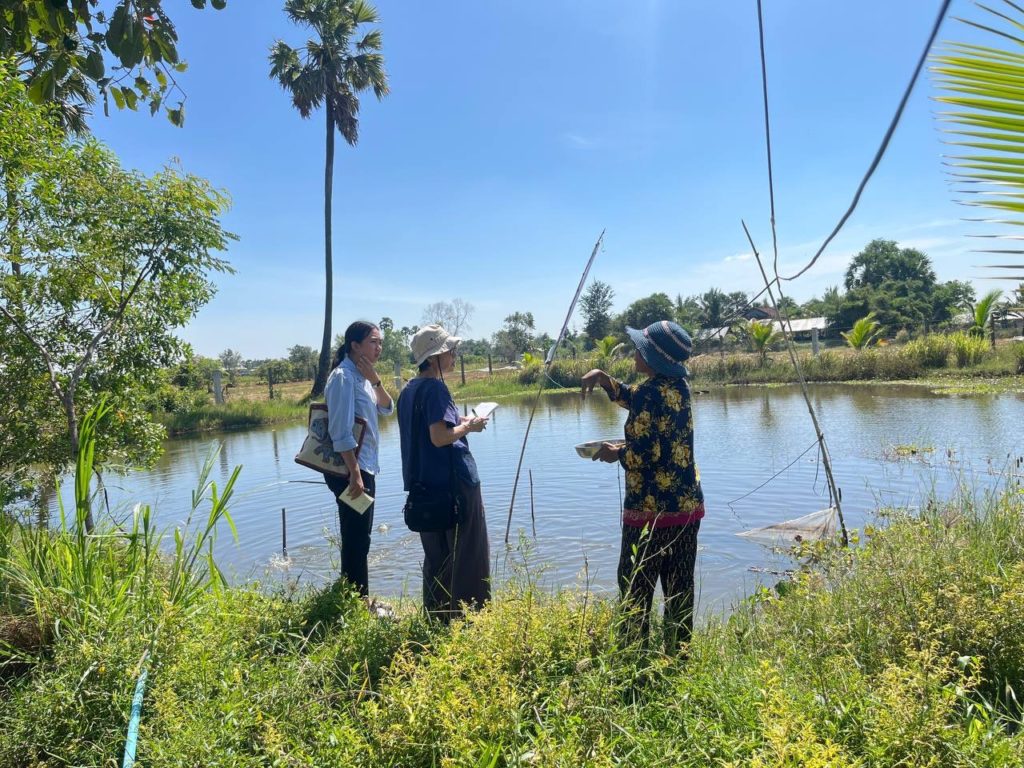
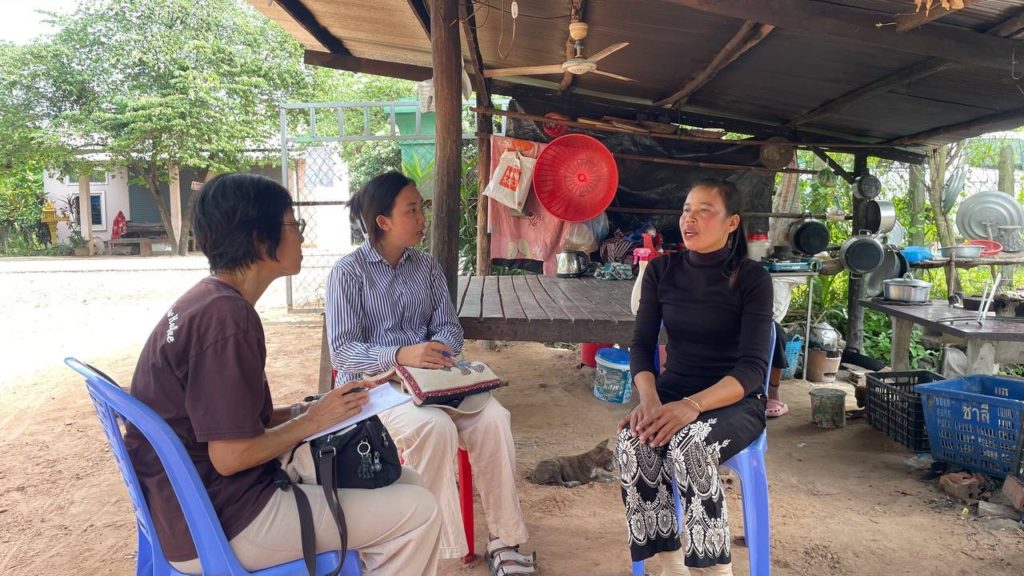
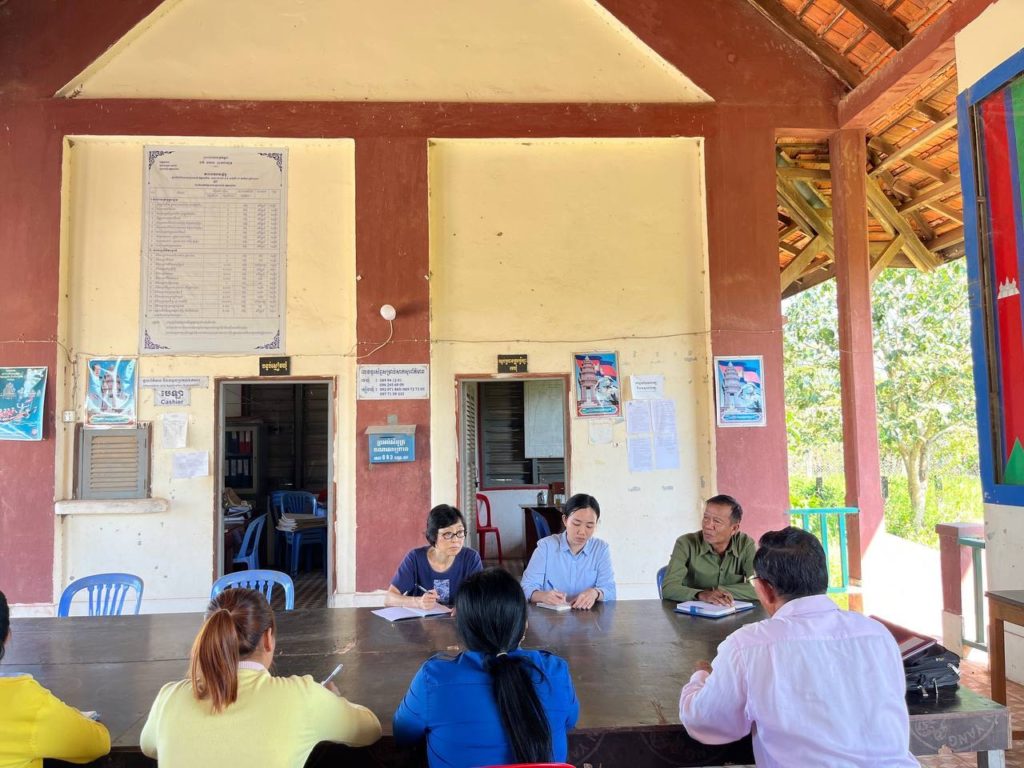
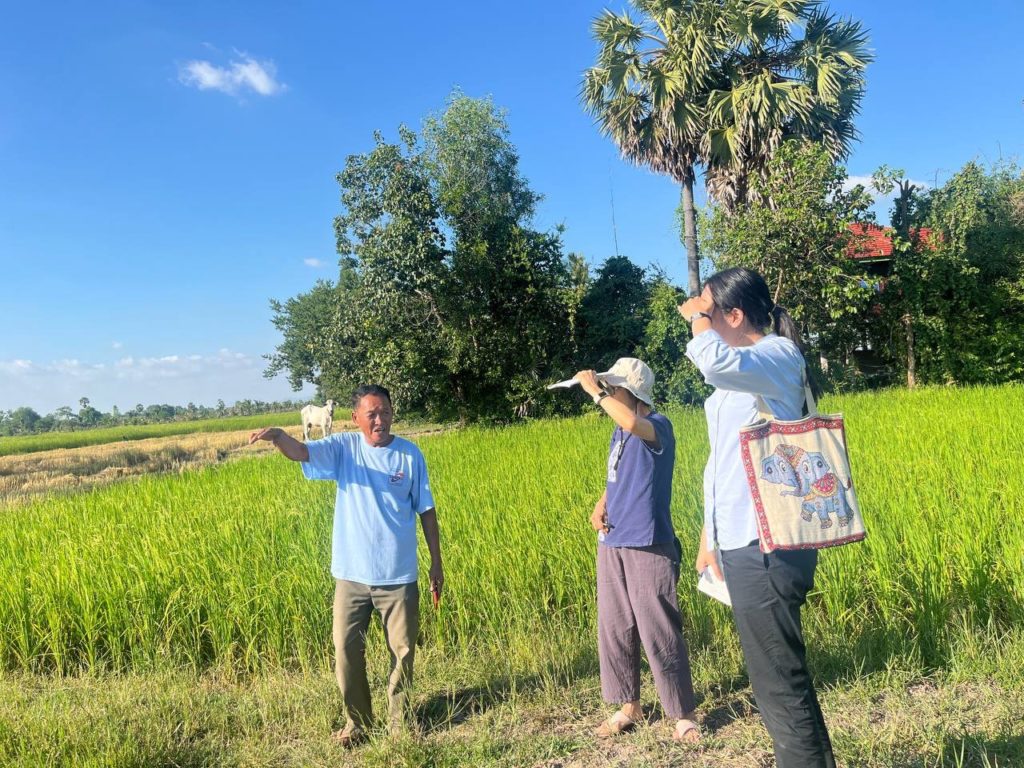
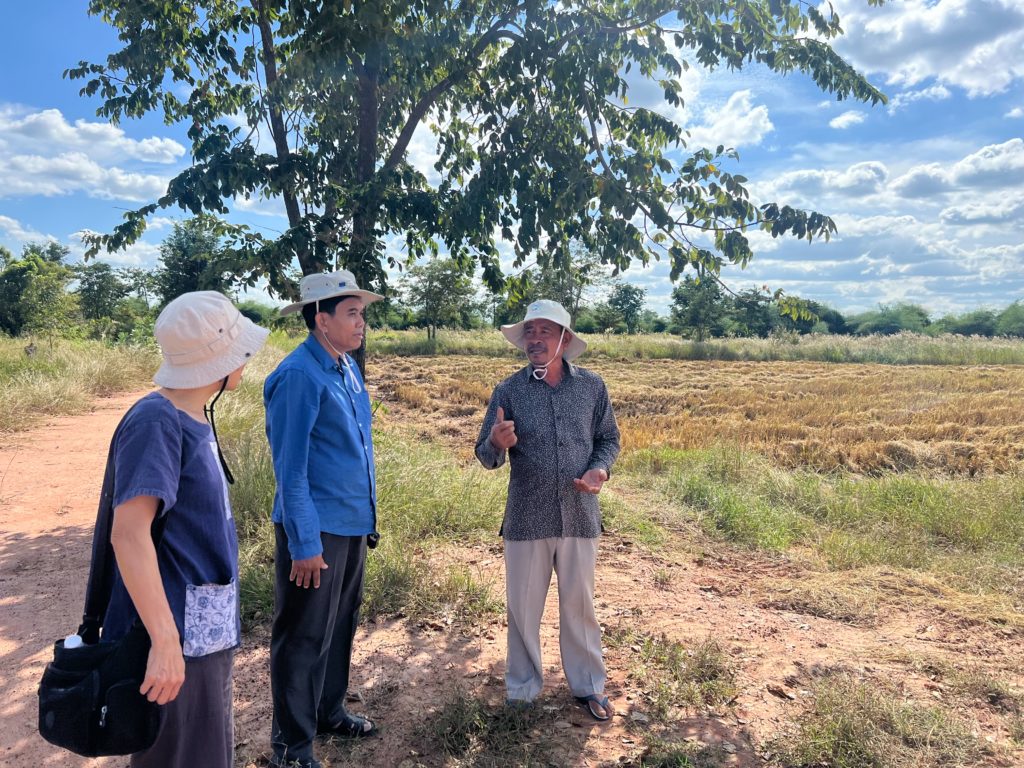
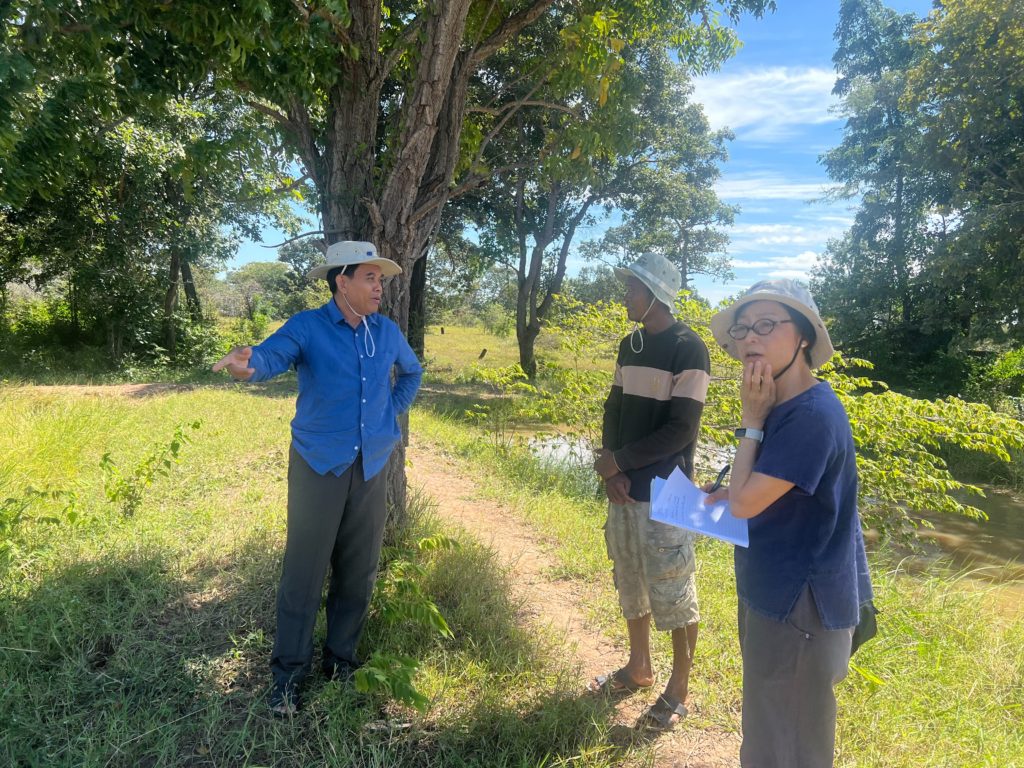
🌾🐟 𝗘𝘅𝗽𝗹𝗼𝗿𝗶𝗻𝗴 𝗥𝗶𝗰𝗲-𝗙𝗶𝘀𝗵 𝗙𝗮𝗿𝗺𝗶𝗻𝗴 𝗶𝗻 𝗠𝗮𝗵𝗮 𝗦𝗮𝗿𝗮𝗸𝗵𝗮𝗺 𝗣𝗿𝗼𝘃𝗶𝗻𝗰𝗲, 𝗧𝗵𝗮𝗶𝗹𝗮𝗻𝗱 🐟🌾


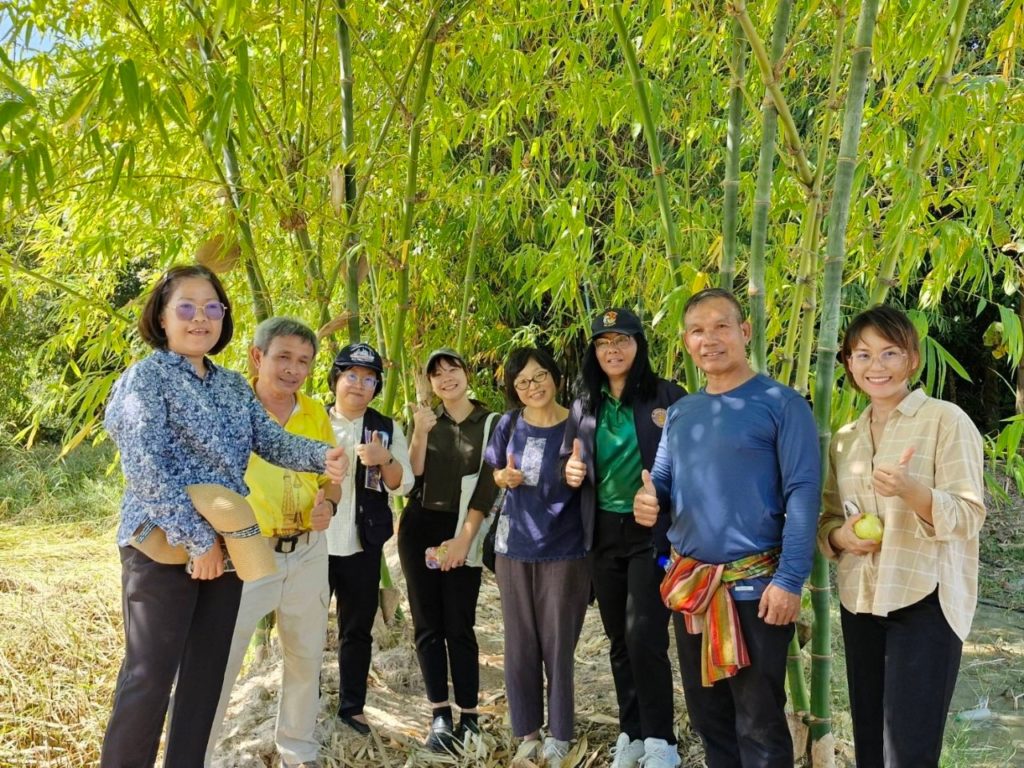

GeNA Project's Panel Participation at ICAF2024 on "Nature-based Solutions and Aquaculture in the Asia-Pacific Region"
Dr. Veena N., representing the GeNA project, served as a panelist in the discussion titled “Nature-based Solutions and Aquaculture in the Asia-Pacific Region” on October 19, 2024. This session was part of the “International Conference on Aquaculture (ICAF2024): Panoramic View of Innovations,” held in Phu Quoc, Vietnam. Hosted by the USER project under the IDRC AQUADAPT program, the panel was organized by Chiang Mai University’s Unit for Social and Environmental Research in collaboration with Can Tho University, Vietnam. Joining Dr. Veena N. on the panel were Dr. Lilian Wong from the CAINA project, Dr. Tran Ngoc Hai from the USER project, and Mr. Robert Hunter from the Aqua-Pearl project.
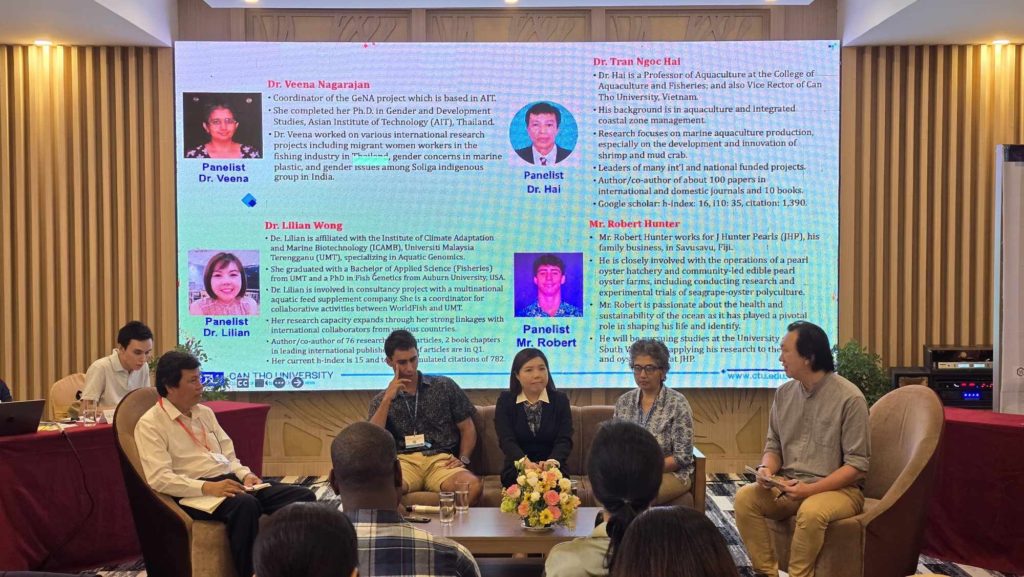
GeNA Project Partners with UPVFI to Enhance Gender Monitoring in Nature-based Aquaculture


GeNA project and CIRD sign MoU to Advance Gender Monitoring in Nature-based Aquaculture
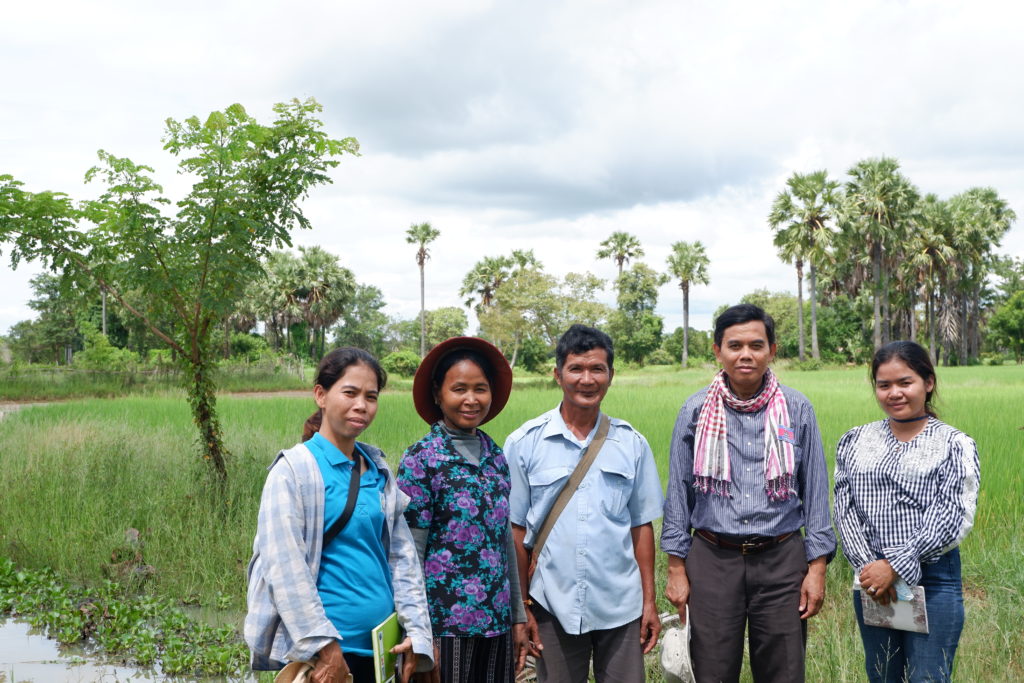
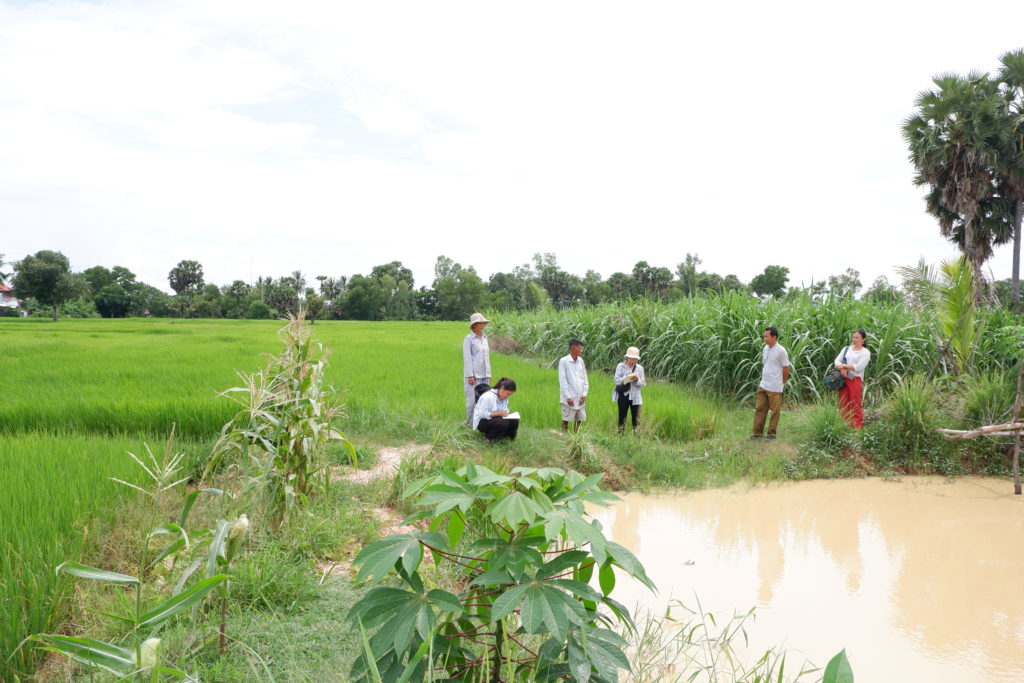
Expert Clinic on Gender Monitoring Schema
Prof. Kyoko Kusakabe presenting the “Gender-responsive monitoring schema in aquaculture” at the expert clinic organized by IDRC during the 2nd AQUADAPT peer-learning event in Penang from 21-23 July 2024.

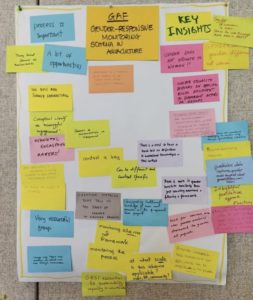
Redefining the Blue Economy: Towards Gender Equity and Social Inclusion

GeNA Team Members Participate in 2nd AQUADAPT Peer-Learning Event in Penang
GeNA team members, Dr. Kyoko Kusakabe, Dr. Arlene Nietes Satapornvanit and Dr. Nikita Gopal, attended the 2nd AQUADAPT peer-learning event in Penang from 21-23 July 2024, along with participants from 10 other AQUADAPT projects. The peer-learning was organized by IDRC and WorldFish with support from Inclusive Innovation. #IDRC_AQUADAPT #WorldFish
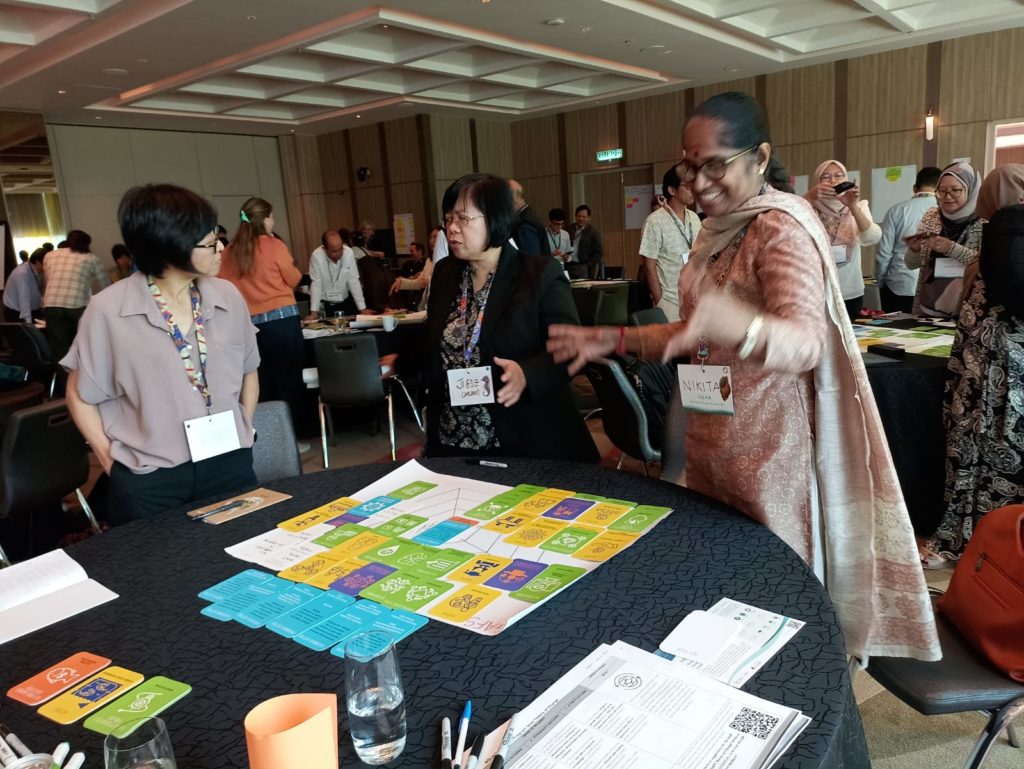
"Governance for Inclusive and Resilient Aquatic Food Systems" Discussion at IIFET Conference 2024
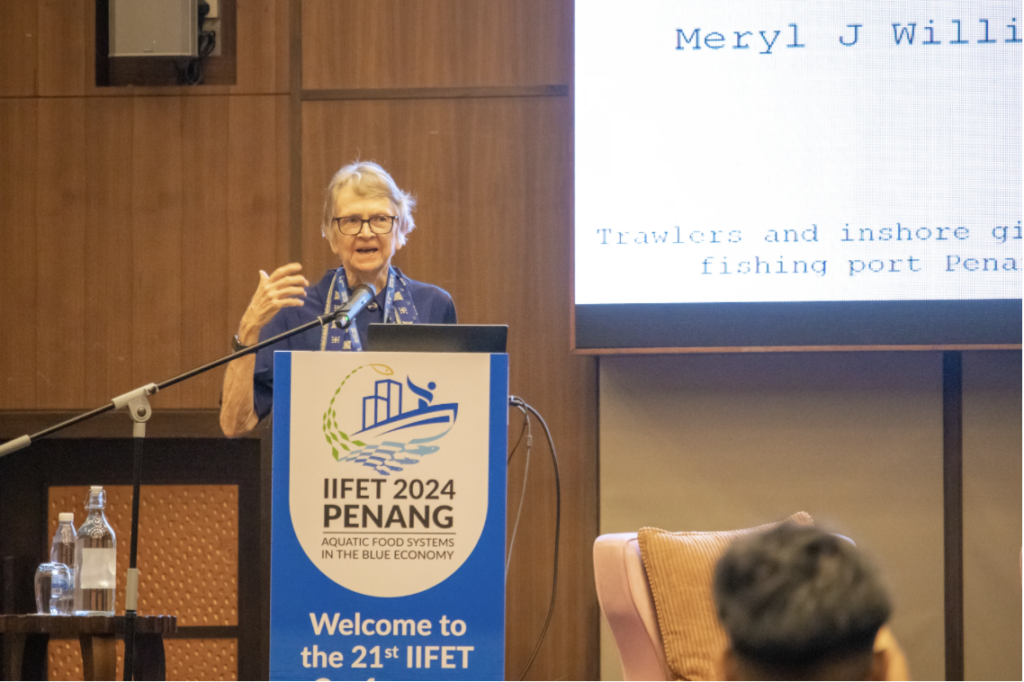
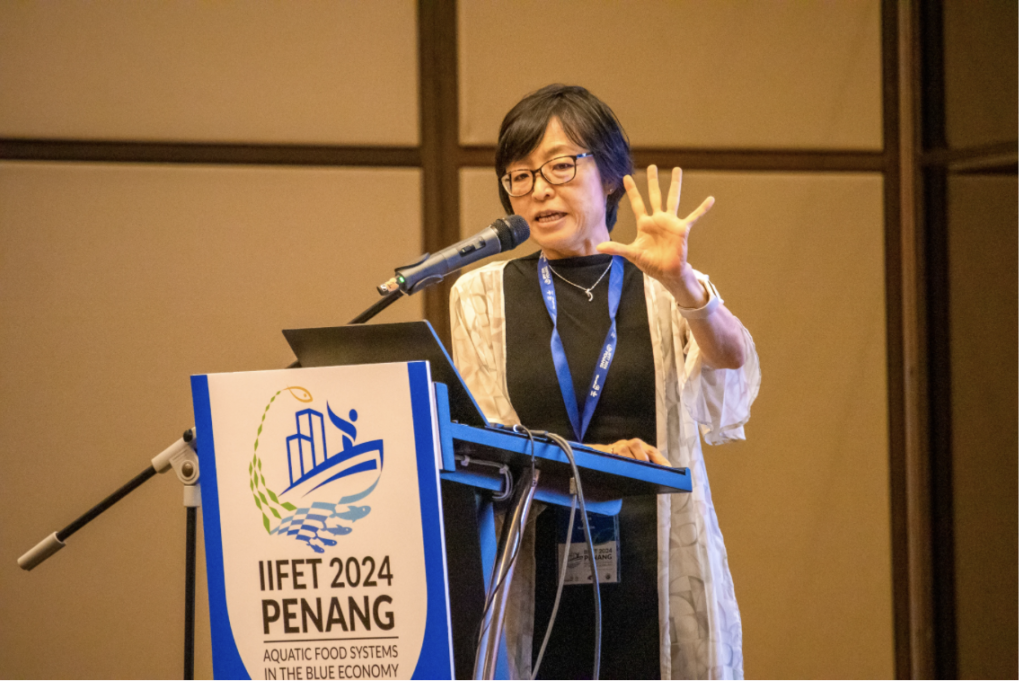
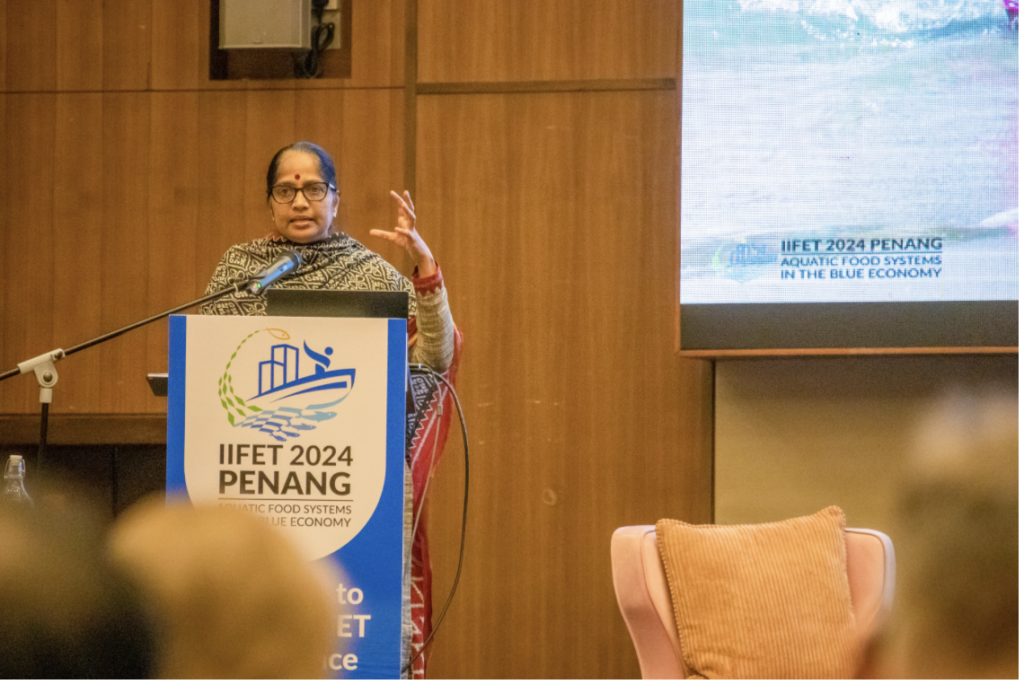
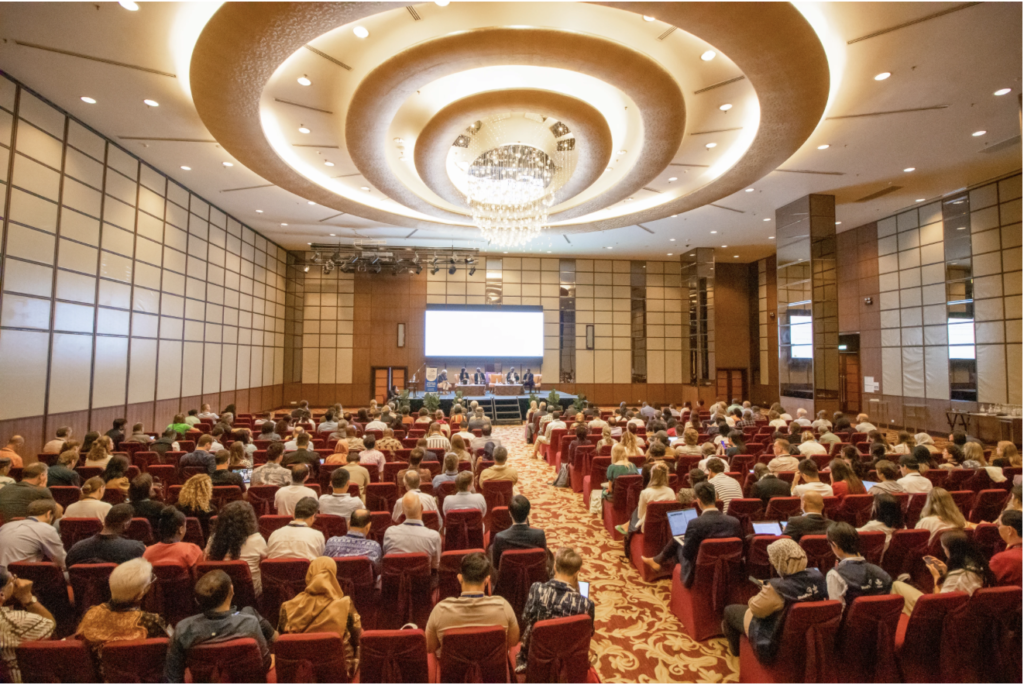
Distinguished Service Award for Dr. Meryl Williams
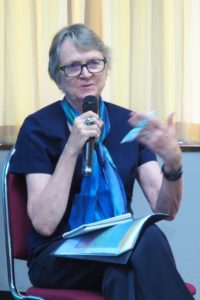
Dr. Meryl Williams was awarded the 2024 Distinguished Service Award by the International Institute of Fisheries Economics & Trade (IIFET) in acknowledgement of her lifelong dedication to sustainable fisheries and her pivotal role in improving the welfare of fishing communities worldwide.
Dr. Meryl Williams is a member of GeNA project team and past president of GAFS. Throughout her career, she has significantly impacted marine conservation and policy on a global scale. Her leadership positions, including Director General of the WorldFish Center, showcase her expertise. Notably, she champions gender equality within the field, increasing awareness of women’s contributions to fisheries and aquaculture economics.
The award was given at the IIFET 2024 conference in Penang, Malaysia (July 15-19), where she was an invited speaker and also co-lead the workshop “Integrating Gender into Fisheries and Aquaculture Economics and Trade Research.”
Margarita Lizárraga Medal Award for Dr Meryl Williams.
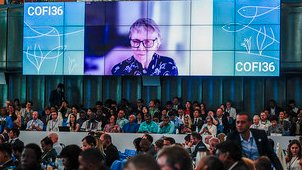
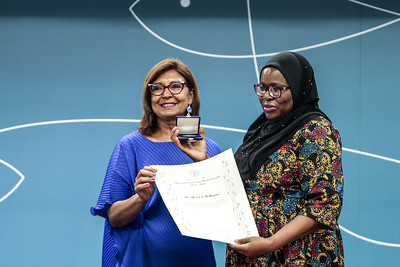
Dr. Meryl Williams was awarded the Margarita Lizárraga Medal for her global impact on fisheries and dedication to women’s empowerment on 9 July 2024 at the 36th Session of the Committee on Fisheries (COFI36). Dr. Kafayat accepted the award on behalf of Dr. Williams.
The Medal, which is awarded by the Director-General FAO every two years, was established in 1997 to pay tribute to the late Ms Margarita Saucedo Lizárraga, Senior FAO Fishery Liaison Officer, for her work in promoting the Code of Conduct for Responsible Fisheries for almost forty years, for her great dedication to FAO and for her strong commitment towards fostering the promotion of the fisheries sector, especially in developing countries.
Awardees are selected based on an outstanding, practical hands-on contribution to the application of the Code of Conduct for Responsible Fisheries demonstrating a tangible output; the activity should be a sustained effort, and not a one–off initiative; and the output should have the potential for a catalytic effect.
Monitoring gender equality in fisheries and aquaculture: Making the invisible visible
Prof. Kyoko Kusakabe made a presentation on “Monitoring gender equality in fisheries and aquaculture: Making the invisible visible” on 24 January 2024 at the symposium on Rural Sustainability in the Asia Pacific. Monitoring only outcomes and not processes makes project monitoring inefficient in capturing how development efforts can move from one outcome to the next, and therefore the learning from such monitoring efforts are limited.
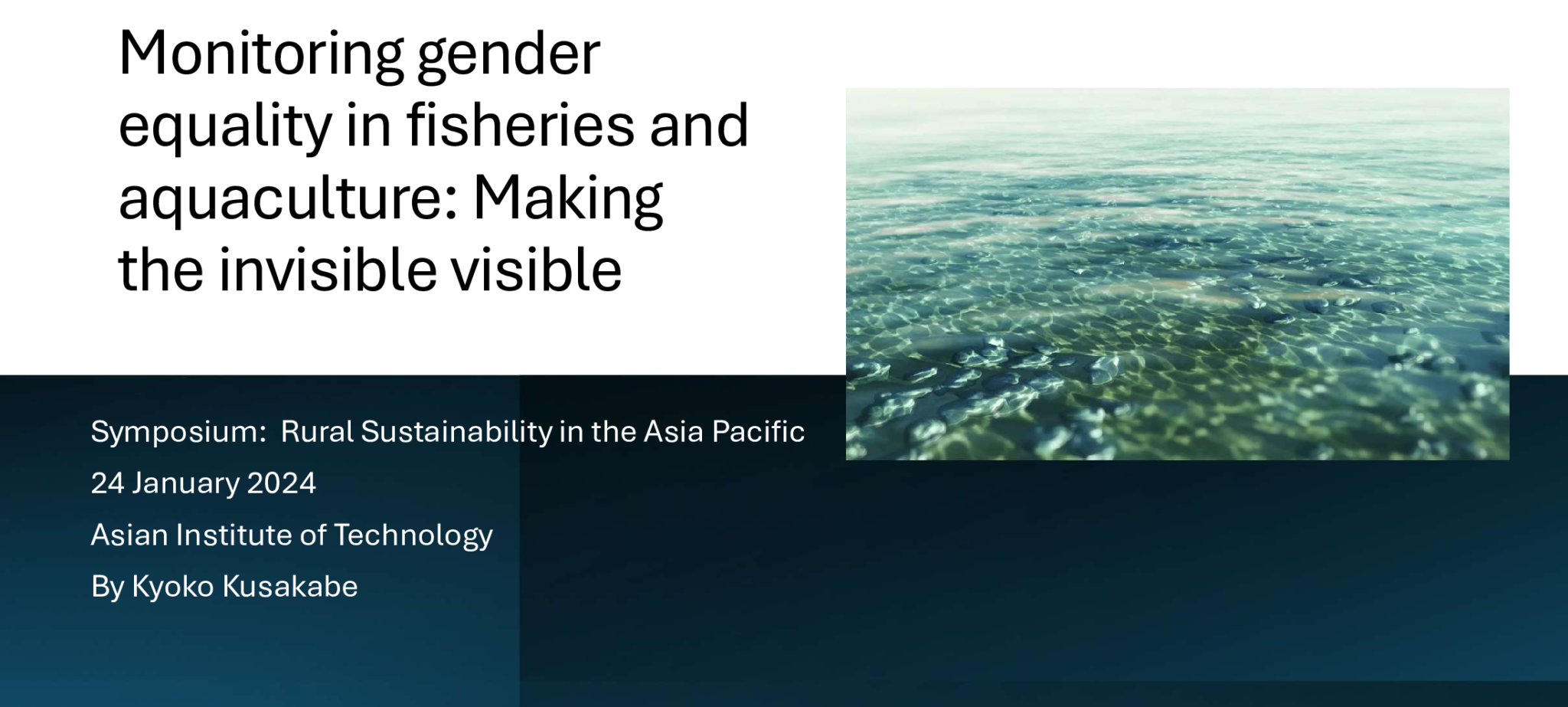
© 2024 GeNA – Gender in NbCS Aquaculture. All rights reserved.


